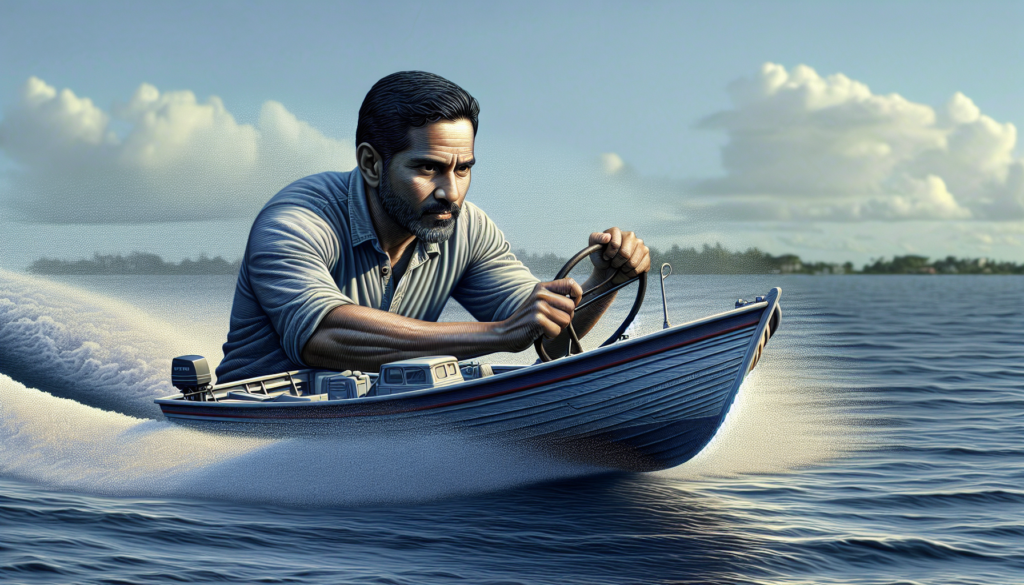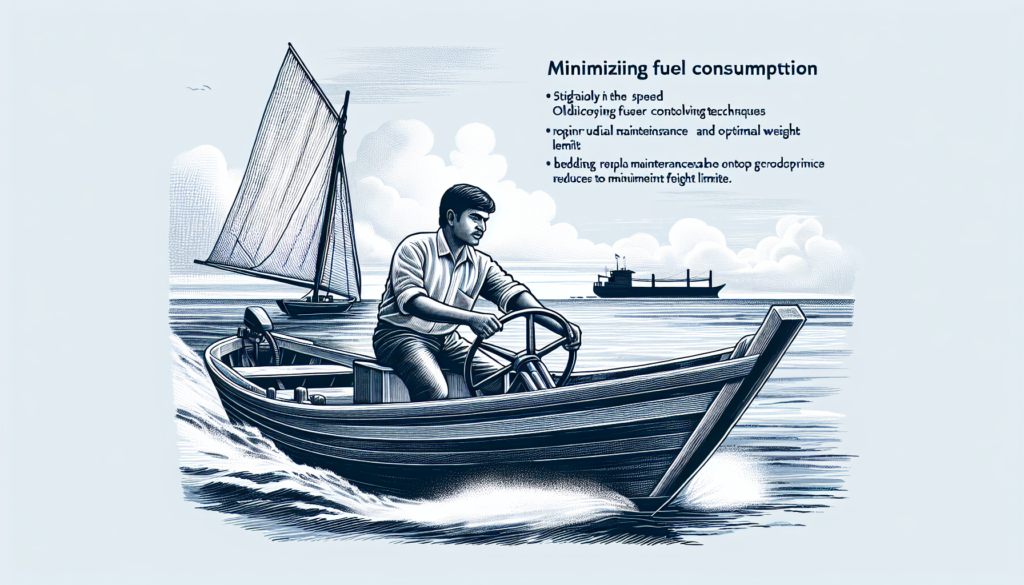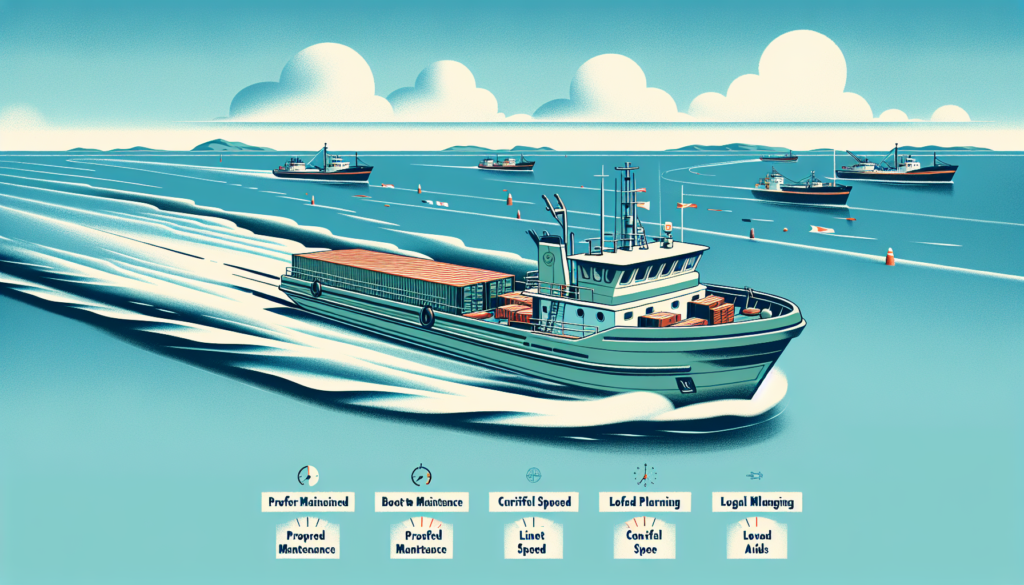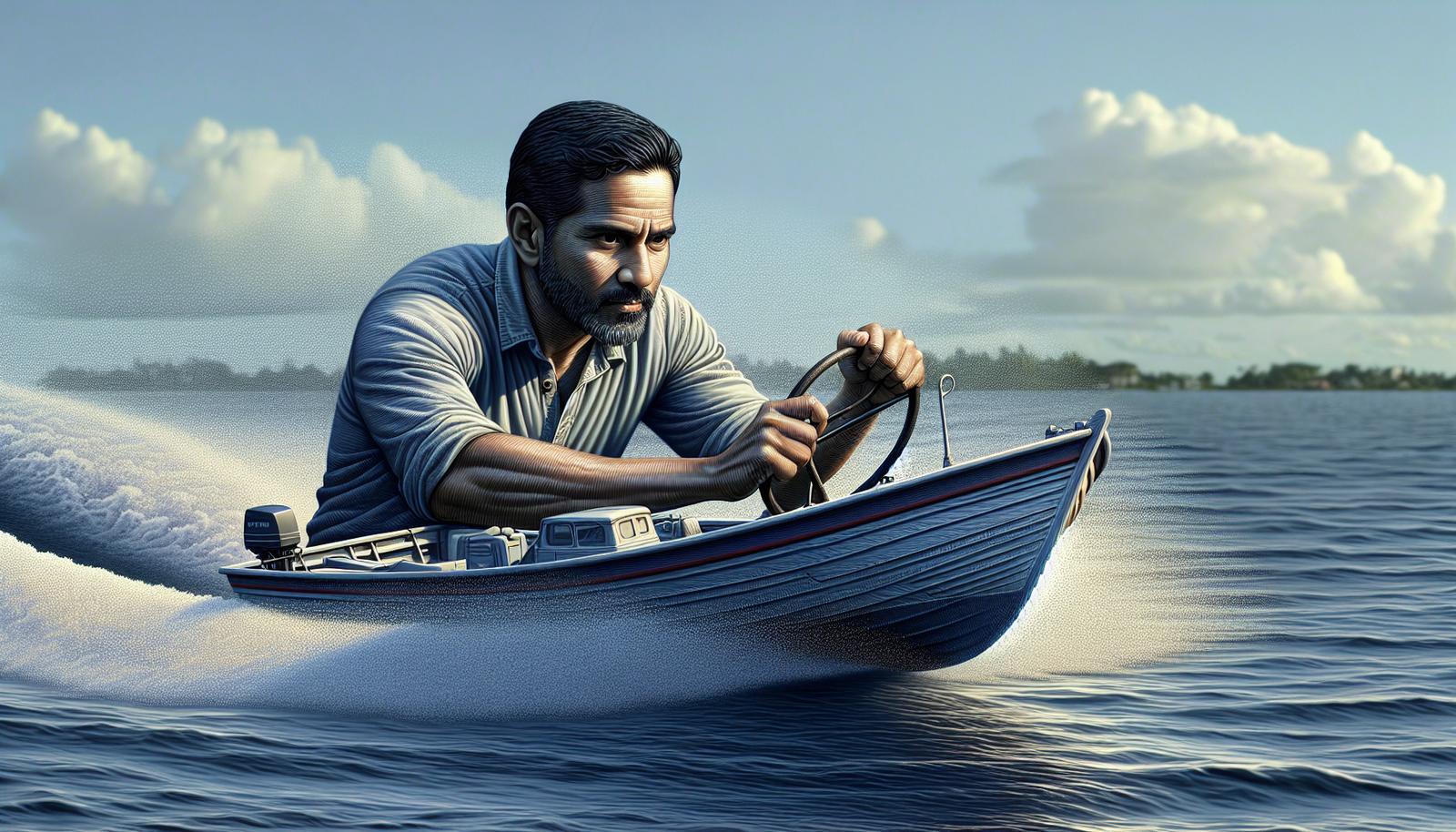Ever gone out on a boating trip and returned with an astronomical fuel bill that made you wonder if it was all worth it? Fret no more. In this article, “Top Ways To Minimize Fuel Consumption While Boating”, you’ll find practical and helpful tips to conserve fuel without compromising on your marine adventures. From simple adjustments in your boating habits to more technical recommendations, this guide is all about setting you on course for a fuel-efficient journey every time you hit the water. Experience guilt-free, exhilarating boating like never before.

Understand the Factors Affecting Your Boat’s Fuel Efficiency
Reducing fuel consumption while boating begins with gaining a thorough understanding of the different elements that affect your boat’s fuel efficiency. Here are some factors that you need to consider:
Understanding Your Boat’s Engine
Your boat’s engine plays a significant role in its fuel efficiency. Different engines have different fuel consumption rates. Engines with a big displacement, such as V8s, generally consume more fuel than smaller four cylinder counterparts. Additionally, two-stoke engines generally use more fuel than four-stroke engines. The condition of your engine will also impact the amount of fuel it uses. Understanding how your engine operates and being aware of what’s normal consumption for your type of engine can help you identify when something’s off and potentially causing higher than necessary fuel usage.
Understanding How Weather Conditions Can Affect Fuel Consumption
Weather conditions can significantly influence how much fuel your boat consumes. Windy weather can make it more challenging for your boat to move through the water, necessitating more engine power, and consequently, more fuel. Similarly, navigating through rough water or against strong currents requires more fuel than running in calm water. Knowing how to navigate in different weather conditions can improve your fuel efficiency.
Understanding How Your Boat’s Load Can Influence Fuel Efficiency
The weight that your boat carries can considerably affect the amount of fuel it uses. Heavier loads require more engine power to move, thereby consuming more fuel. This means your fuel efficiency can change depending on how many people or the amount of gear you have onboard. So, keeping your load light where possible can help improve fuel efficiency.
Proper Maintenance of Your Boat’s Engine
Keeping your boat’s engine in top shape can significantly impact its fuel efficiency.
Get Regular Engine Check-ups
Similar to a car, a well-maintained engine operates more efficiently and consumes less fuel. Regular check-ups can catch any issues early and prevent them from worsening and potentially causing more fuel consumption. This includes checking and topping up oil levels, inspecting the spark plugs, and ensuring cooling systems are working effectively.
Clean and Replace Filters Regularly
Dirty or clogged filters restrict the flow of air and fuel to the engine, making it work harder and consume more fuel. Regularly cleaning or replacing your filters can keep your engine running smoothly and improve fuel efficiency.
Ensure Your Engine’s Fuel System is Clean
A clean fuel system ensures an efficient flow of fuel to your engine. Any blockages in the fuel lines, dirt in the fuel, or issues with the fuel pump can all decrease your engine’s performance and increase fuel consumption. Keeping your fuel system clean can therefore significantly improve your boat’s fuel efficiency.

Maximize Your Boat’s Aerodynamics
Just like a car, improving your boat’s aerodynamics can reduce the air resistance it faces while moving, thus limiting the amount of fuel required.
Prevent Drag
Drag is a resistive force that your boat encounters as it moves through the water. It can significantly reduce your boat’s fuel efficiency. Keeping the boat’s bottom clean, reducing the amount of gear or equipment hanging over the side, and ensuring your trim tabs are properly adjusted can help minimize drag.
Maintain a Clean Hull
Algae, barnacles, and other marine creatures can attach to your boat’s hull and increase drag. Cleaning your hull regularly and using anti-fouling paint can keep it smooth and reduce resistance, improving fuel efficiency.
Make Sure Your Boat is Not Overloaded
An overloaded boat sits lower in the water, increasing surface area and drag. Making sure your boat isn’t carrying any unnecessary weight can make it more aerodynamic and improve fuel efficiency.
Effective Operation of Your Boat
How you operate your boat can also significantly impact its fuel efficiency.
Start Your Boat Correctly to Save Fuel
Extreme temperatures can affect your engine’s function. In colder conditions, it’s advised to let your engine warm up before starting your journey, but not for too long. In hotter climates, be aware that excessive heat can affect your engine’s performance, and cool down measures may be necessary.
Operate Your Boat at the Ideal Speed
Every boat has an ideal speed, often referred to as the throttle ‘sweet spot,’ where it achieves maximum fuel efficiency. This is usually around 60% of the boat’s full throttle. Operating your boat at this speed can significantly reduce its fuel consumption.
Avoid Aggressive Acceleration and Deceleration
Aggressive acceleration and deceleration can significantly increase your boat’s fuel consumption. Gradual acceleration and deceleration, maintaining a stable speed, and reducing engine idling times can all improve your fuel efficiency.

Utilizing Efficient Navigation Techniques
Good navigation can also make your boating more fuel-efficient.
Plan Your Route Ahead of Time
Planning your route, as possible, can enable you to use the shortest and most straightforward course, reducing the distance you need to travel, and thereby minimizing fuel consumption.
Utilize Currents and Tides to Your Advantage
The ocean’s currents and tides can also be used to improve your fuel efficiency. Traveling with the currents or tides, rather than against them, can require less engine power and thus reduce fuel consumption.
Avoid Unnecessary Idling
When you’re not actively navigating, switch off your engine. Unnecessary idling can consume a surprising amount of fuel. If your engine needs to be on for power, consider using battery-powered equipment or generators as an alternative.
Optimal Selection and Use of Boat Equipment
The equipment you select and use on your boat can also influence its fuel efficiency.
Use Energy Efficient Appliances
If your boat has appliances like fridges, air conditioning, or lighting, switching to energy-efficient models can reduce power consumption. This means your engine or generator will need to produce less power and can save fuel.
Monitor and Manage Power Usage Onboard
Managing the power usage on your boat can reduce the load on your engine or generator. Turning off any equipment that’s not in use and regularly checking the power usage of your devices can ensure that you’re not using more power – and consequently more fuel – than necessary.
Choose Light Equipment
Heavy equipment can weigh your boat down and increase fuel consumption. Choosing lighter equipment where possible can keep your boat’s weight down and improve fuel efficiency.

Preserve Fuel through Efficient Docking and Anchoring
How you dock and anchor your boat also affects your fuel consumption.
Minimize Power While Docking
Docking usually takes a significant amount of power due to the precision needed. However, where possible, minimizing the use of power while docking can preserve fuel. This can be done by allowing your boat to glide into the dock under minimal power.
Use Anchoring Instead of Mooring when Possible
Anchoring uses less power than mooring on a buoy. When you’re settling down for a while, consider using the anchor if it’s safe and appropriate.
Avoid Excessive Use of Bow Thrusters
Bow thrusters use a lot of power and can quickly drain fuel if overused. If conditions permit, use them sparingly and consider allow your boat to drift naturally instead.
The Role of the Right Propeller in Reducing Fuel Cost
Your boat’s propeller significantly influences its fuel efficiency.
Choose the Correct Propeller for Your Boat
Different boats require different propellers for efficient operation. The size, number of blades, and material can all influence how efficiently a propeller moves your boat through the water. A propeller that’s not matched to your boat can reduce its performance and increase fuel consumption.
Maintain Your Propeller Regularly
A damaged, dirty, or badly maintained propeller can create extra resistance and drag, reducing fuel efficiency. Regular propeller checks and maintenance can ensure that it’s always performing at its best.
Understand When to Change Your Propeller
Like other parts of your boat, your propeller won’t last forever. Understanding when it’s time to replace your propeller can help you maintain optimal fuel efficiency.
Training and Skill Development for Fuel-Efficient Boating
Improving your boating skills can also help you reduce your fuel consumption.
Take Courses in Fuel Efficient Boating
Specialist courses in fuel-efficient boating can provide you with the knowledge and skills to reduce your fuel consumption. These can include both theoretical learning and practical training.
Learn From Experienced Boaters
Experienced boaters often have a wealth of knowledge about effective, fuel-efficient boating. Learning from them can give you valuable insights and practical tips to apply to your own boating.
Constantly Update Your Knowledge about Your Boat and Boating Practices
The world of boating is constantly evolving, with new techniques, technologies, and equipment continually being developed. Keeping up-to-date with the latest developments can ensure that you’re always using the most efficient and up-to-date practices.
Environmental Benefits of Efficient Fuel Consumption
Finally, it’s worth remembering that reducing your fuel consumption isn’t just good for your wallet—it also benefits the environment.
How Reduced Fuel Consumption Helps the Environment
Reduced fuel consumption leads to lower emissions of greenhouse gases like carbon dioxide that contribute to climate change. It also reduces the risk of fuel spills that can harm marine life.
Ecologically Friendly Boating Practices
In addition to reducing fuel consumption, there are other ways you can make your boating more ecologically friendly. This can include using eco-friendly cleaning products, disposing of waste correctly, and avoiding sensitive areas that are home to fragile marine ecosystems.
Encouraging Others to Consume Fuel Efficiently
By sharing your knowledge and exhibiting responsible, fuel-efficient boating practices, you can influence other boaters to do the same. The combined impact of everyone reducing their fuel consumption can make a significant difference to our environment.
In conclusion, achieving fuel-efficient boating involves understanding a range of factors and making a concerted effort to optimize each one of them. By implementing the practices outlined in this article, you can look forward to saving on fuel costs, extending your boating range, reducing your carbon footprint, and contributing positively to the marine environment.


[…] maritime devotees! Here’s some valuable information tailored just for you. “Top Ways to Minimize Fuel Consumption While Boating” is an article that arms you with essential knowledge on how to prolong your boating […]